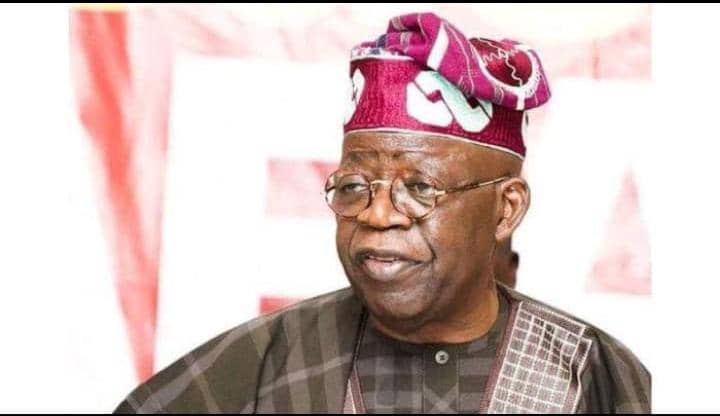As 2024 draws to a close, President Bola Tinubu’s promise of a “Budget of Renewed Hope” totaling ₦28.77 trillion has led to disappointment for many Nigerians, with over 64 per cent skipping meals and families paying ₦2.3 trillion in ransoms due to rampant insecurity.
The harsh realities have ignited skepticism as Tinubu introduces a new ₦47.9 trillion budget for 2025, labeled the “Budget of Restoration: Securing Peace, Rebuilding Prosperity”.

As the budget takes centre stage in political issues, many question whether this ambitious budget will truly benefit ordinary Nigerians. This question arises, given the historical pattern of government budgets failing to deliver tangible improvements in daily life.
A Year Of Unfulfilled Promises
His 2024 budget, an eye-popping ₦28.77 trillion, was heralded as the “Budget of Renewed Hope.” Yet, as the year concludes, that hope feels no more tangible than a mirage on the horizon.
The National Bureau of Statistics (NBS) reveals troubling truths: Over 64 per cent of Nigerians faced hunger, routinely skipping meals, while desperate crowds surged for government palliatives resulting in tragic deaths.
In a country already beleaguered by widespread kidnapping, the financial toll is staggering. Families paid a shocking ₦2.3 trillion in ransoms throughout the year.
It begs the question: if hope was the promise, where did it lead?
The Human Cost of Poor Governance
Now, Tinubu is back with yet another ambitious proposal for 2025, floating a staggering ₦47.9 trillion budget and dubbing it the “Budget of Restoration: Securing Peace, Rebuilding Prosperity”.
But will this budget truly restore the dignity and livelihoods of ordinary Nigerians? For many, the answer is predictable: a resounding no.
The truth is as clear as it has ever been this is yet another illusory promise.
A Yoruba proverb illustrates this perfectly: “Oju lofiri, ete e o kan,” meaning one can admire a feast yet taste nothing.
Such has been the reality for the average Nigerian regarding government budgets visions of grandeur that seldom translate into reality.
Although Aristotle termed politics as a tool for “human flourishing,” and Thomas Jefferson underscored the government’s duty to ensure happiness, these principles seem lost on Tinubu’s administration.
In an enlightening comparison, one sees how budgets in the UK focus primarily on welfare, health, education, and public services areas designed to uplift citizens.
Tinubu’s Rosy Picture Vs Harsh Reality
In stark contrast, Nigerian budgets, forebodingly, prioritise capital expenditures marred by misappropriation, the burdensome costs of a bloated bureaucracy, and debt servicing.
These allocations mainly enrich the elite while ordinary citizens are left grappling with poverty, a glaring failure of governance.
Within the confines of Aso Rock, however, Tinubu paints a rosier picture.
In his recent budget speech, he touted his administration’s “remarkable milestones” in implementing the previous budget, claiming a GDP growth of 3.46 per cent and foreign reserves nearing $42 billion as signs of economic health.
Yet, historical data suggests otherwise.
A recent analysis by SBM Intelligence starkly indicates that Tinubu’s economic performance falls short against his predecessors, even those who faced significant challenges of their own.
The reality is evident.
Under previous administrations, Nigeria enjoyed GDP growth rates averaging eight per cent while battling inflation that never exceeded 18 per cent.
In contrast, the current administration struggles with an inflation rate now soaring to an alarming 34.6 per cent.
The stark deterioration in external reserves throughout Tinubu’s term is disheartening, now hovering around $42 billion, which hardly warrants the celebratory rhetoric from the president.
Speaking on security, a key area in which he claimed progress, Tinubu overlooked that NBS statistics report Nigerians paid an alarming ₦2.3 trillion in ransoms under his leadership, affecting 65 per cent of households.
His repeated justification of a bloated cabinet during a recent media chat showcased a level of disconnect with the harsh realities faced by so many.
Also Read: Telecom Operators Plan New Year Gift For Nigerians
A Grim Outlook for 2025
The 2025 budget, which Tinubu labels as “ambitious,” allocates a staggering ₦15.81 trillion solely for debt servicing, eclipsing essential expenditures for security, health, education, and infrastructure combined.
Of the proposed ₦47.9 trillion, ₦13.08 trillion is a deficit that hinges on unrealistic assumptions about oil production and exchange rates.
The beneficiaries of this budget remain uncertain, yet one thing is clear: ordinary Nigerians, once again, will likely find themselves on the losing end.

